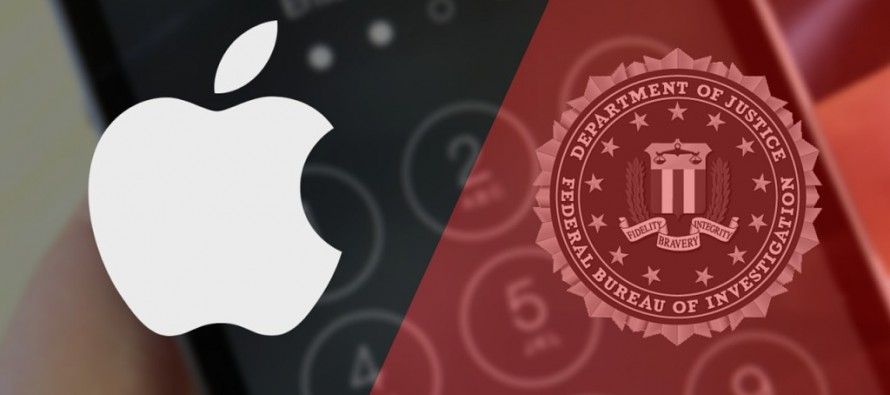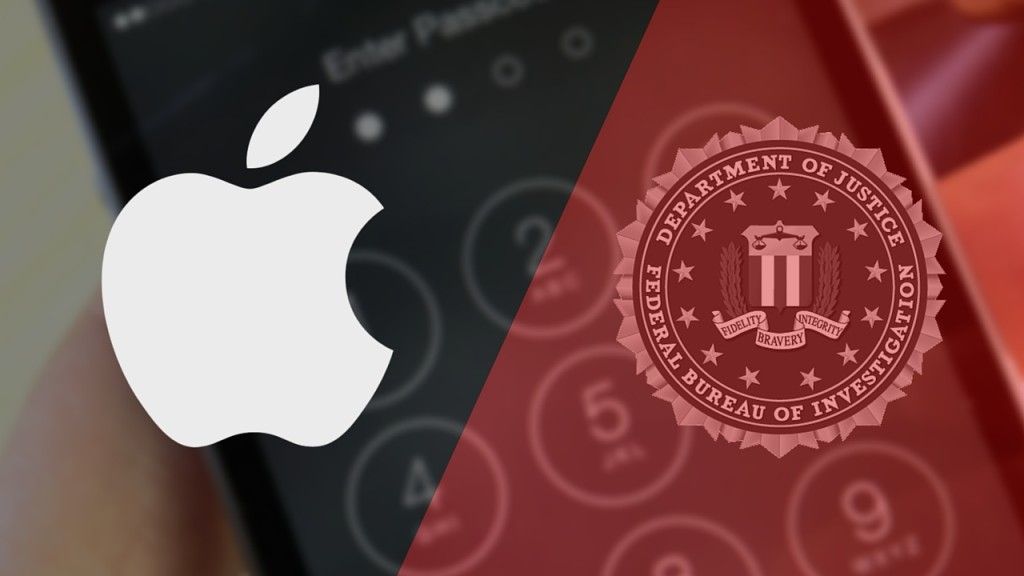Silicon Valley defends Apple as FBI continues to pressure tech giant

 With neither side willing to back down, the confrontation between Apple and the FBI over the San Bernardino shooter’s iPhone has transformed into a pivotal conflict between the tech industry and the federal government.
With neither side willing to back down, the confrontation between Apple and the FBI over the San Bernardino shooter’s iPhone has transformed into a pivotal conflict between the tech industry and the federal government.
Scores of companies threw their weight behind Apple’s effort in court to block the FBI’s bid to unlock the phone. “Google, Amazon, Facebook, Microsoft and a parade of other technology companies filed a barrage of court briefs […] aiming to puncture the United States government’s legal arguments against Apple in a case that will test the limits of the authorities’ access to personal data,” CNBC reported. “The extraordinary show of support for Apple from the tech companies, including many rivals, underscores how high the stakes are for the industry with the case, in which the authorities are demanding Apple’s help” to break into the phone.
Federal fury
The Justice Department fought back with a searing brief, saying “Apple should be compelled to help the F.B.I. break into the iPhone and that the company should not be allowed to hide behind what prosecutors said were diversionary tactics in the court of public opinion,” according to the New York Times.
“The fight has been brewing since mid-February, when Magistrate Judge Sheri Pym of the Federal District Court for the Central District of California ordered Apple to create and deploy an alternative operating system that would help law enforcement agents break into the iPhone in the San Bernardino case. Apple publicly opposed the order, igniting a standoff with the F.B.I. and the Justice Department.”
Underscoring the government’s view of the importance of the case, President Obama himself made a point to remark publicly on the controversy, insisting — if obliquely — that national security was imperiled by the precedent Apple would set. “Speaking at the South by Southwest festival in Texas, the president said he could not comment on the legal case in which the Federal Bureau of Investigation is trying to force Apple to allow access to an iPhone linked to San Bernardino shooter Rizwan Farook. But he made clear that despite his commitment to Americans’ privacy and civil liberties, a balance was needed to allow some government intrusion if necessary,” IT News noted.
A tipping point
But not all in government have agreed. Also in Austin, countering the president’s position, was Rep. Darrell Issa, R-Ca., a former tech titan in his own right who chaired the House Oversight and Government Reform Committee until last year. Issa told USA Today the FBI’s decision to push the limits on privacy protections was “a bad decision,” although he credited FBI Director James Comey with making an “honest and forthright” effort to convince Congress of the merits of the Bureau’s case. “The repercussions of creating a digital ‘backdoor’ to the iPhone not only weakens technology, but endangers the civil liberties of individuals, emboldens prosecutors to pursue thousands of similar cases and compromises corporations like Apple overseas, where privacy laws are stricter,” Issa and his allies have cautioned, the paper added.
On the other hand, foreign countries sizing up the U.S. debate have already seen the introduction of proposed measures that would grant their governments sweeping, invasive new authority. “Intelligence agencies and the police could get powers which would allow them to hack into phones under proposed new laws which would force firms to install deliberate security flaws,” the Daily Mail wrote of a new British scheme. “Under the plans, which are currently being considered by Parliament, internet service providers and technology giants like Apple would have to build secret security flaws into mobile phones, tablets and computers which would allow officials to access the devices. The so-called ‘backdoor technology’ would allow police and security agencies to hack into the devices whenever they wished.”
Critics have charged that Apple is more interested in a marketing coup than in customers’ privacy rights. But recent polling revealed that about half of Americans surveyed “support Apple’s decision to resist the government’s demand to unlock the iPhone,” the San Francisco Chronicle reported. “Meanwhile, public trust in government has remained at some of its lowest points in recent history.”
Related Articles
Bridge Tax Fails; Local Tax Passes
JUNE 13, 2011 By KATY GRIMES In the California Senate Friday, after a week of budget talks and hearings, the
Hahn-Huey Dogfight for Cong. District
JULY 11, 2011 By KATY GRIMES After the February resignation of Democratic Rep. Jane Harman from the 36th Congressional District, most
AB 154: Fuzzy numbers used to justify increasing abortion providers
SACRAMENTO — Despite questions about statistics, AB 154 passed both houses of the state Legislature and is headed to Gov.



